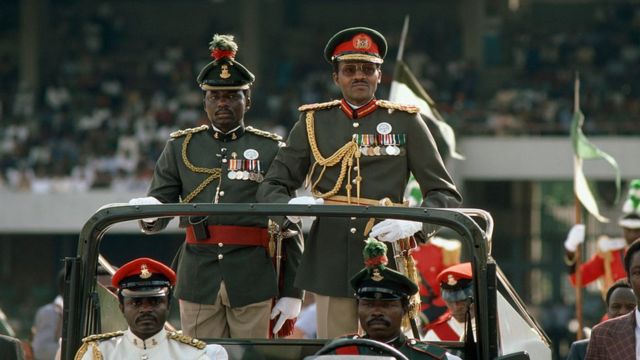Nigeria’s Buhari Dies at 82: Twice a Nation’s Leader

Introduction
Nigeria mourns the loss of Muhammadu Buhari, a man who shaped the nation’s political landscape for decades. Buhari, who led Nigeria both as a military ruler and as a democratically elected president, died in London at the age of 82 after a prolonged illness. His passing, confirmed by Nigeria’s presidential press office, sent shockwaves through Africa’s most populous country and the world.
Early Life and Rise to Power
Born on December 17, 1942, in Daura, Katsina State, Buhari’s early years reflected discipline and service. He attended military schools in Kaduna, Great Britain, India, and the United States. Rising swiftly through the Nigerian Army, Buhari became the military governor of Borno State in 1975 after a coup toppled Yakubu Gowon. This region later became known for the Boko Haram insurgency.
Military Rule and the “War Against Indiscipline”

Buhari first took national leadership in 1983 after leading a military coup that ended Nigeria’s brief democratic period. As head of state, he launched the “War Against Indiscipline,” aiming to restore order and fight corruption. He slashed government spending, imposed strict import controls, and banned state governments from borrowing. His administration jailed hundreds of politicians and officials for corruption, earning both praise and criticism for his uncompromising approach.
However, his strict policies also drew condemnation. Buhari’s government suspended the constitution, curtailed press freedom, and detained critics without trial. The regime’s crackdown on dissent, such as the jailing of musician Fela Kuti, left a mark on Nigeria’s collective memory. In August 1985, another coup overthrew Buhari, and he spent years in detention, away from the public eye.
Return to Democracy and Presidential Victories

Decades later, Buhari returned as a symbol of hope for many Nigerians frustrated by corruption and insecurity. After three unsuccessful presidential bids, he made history in 2015 by defeating incumbent Goodluck Jonathan. Many observers called this Nigeria’s most credible election to date. Buhari’s victory marked the first time an opposition candidate unseated a sitting president in Nigeria, a milestone that resonated across Africa.
As president, Buhari promised to root out corruption, defeat Boko Haram, and revive Nigeria’s economy. His administration launched high-profile investigations into government spending, exposing billions in missing funds. He insisted on transparency and discipline, often repeating, “I belong to everybody and I belong to nobody,” to signal his independence from entrenched interests.
Challenges and Criticisms
Optimism faded as Nigeria slipped into its first recession in decades, battered by falling oil prices and policy missteps. Inflation soared, and millions found themselves trapped in poverty. While his government made gains against Boko Haram, violence spread to other regions, with armed groups and criminal gangs operating with impunity. Corruption scandals persisted, and critics accused Buhari of failing to unite Nigeria’s diverse ethnic and religious groups.
Buhari’s health became a national concern during his presidency. He spent extended periods in London for medical treatment, including a seven-month absence in 2017, which fueled rumors and anxiety at home. Despite these challenges, he won re-election in 2019, defeating his main rival by more than three million votes. By the end of his second term in 2023, many Nigerians felt let down by unmet promises and ongoing insecurity.
National Reaction and Legacy
News of Buhari’s death prompted an outpouring of tributes and reflection. President Bola Ahmed Tinubu, his successor, ordered flags flown at half-mast and sent the vice president to London to oversee the return of Buhari’s remains. “He served Nigeria with unwavering commitment and discipline,” Tinubu said, urging the nation to honor Buhari’s legacy by upholding the values he championed.
Supporters remember Buhari as a reformer who challenged the status quo. They highlight his anti-corruption drive and efforts to restore discipline as lasting contributions to Nigeria’s development. Detractors point to his authoritarian tendencies and the economic hardships endured under his watch. They argue that Buhari’s leadership, while historic, fell short of the transformative change he promised.
Buhari’s story mirrors Nigeria’s own journey, a nation striving to balance order and freedom, tradition and progress. His life spanned coups and elections, hope and disappointment, unity and division. As Nigerians gather to mourn and reflect, the debate over Buhari’s place in history continues. What remains clear is that he left an indelible mark on the country he served.
As the sun sets on an era defined by Buhari’s presence, Nigeria faces the future with uncertainty but also with the resilience that has carried it through decades of upheaval. The passing of Muhammadu Buhari closes a remarkable chapter in the nation’s history, but the questions he leaves behind will shape its destiny for years to come.

